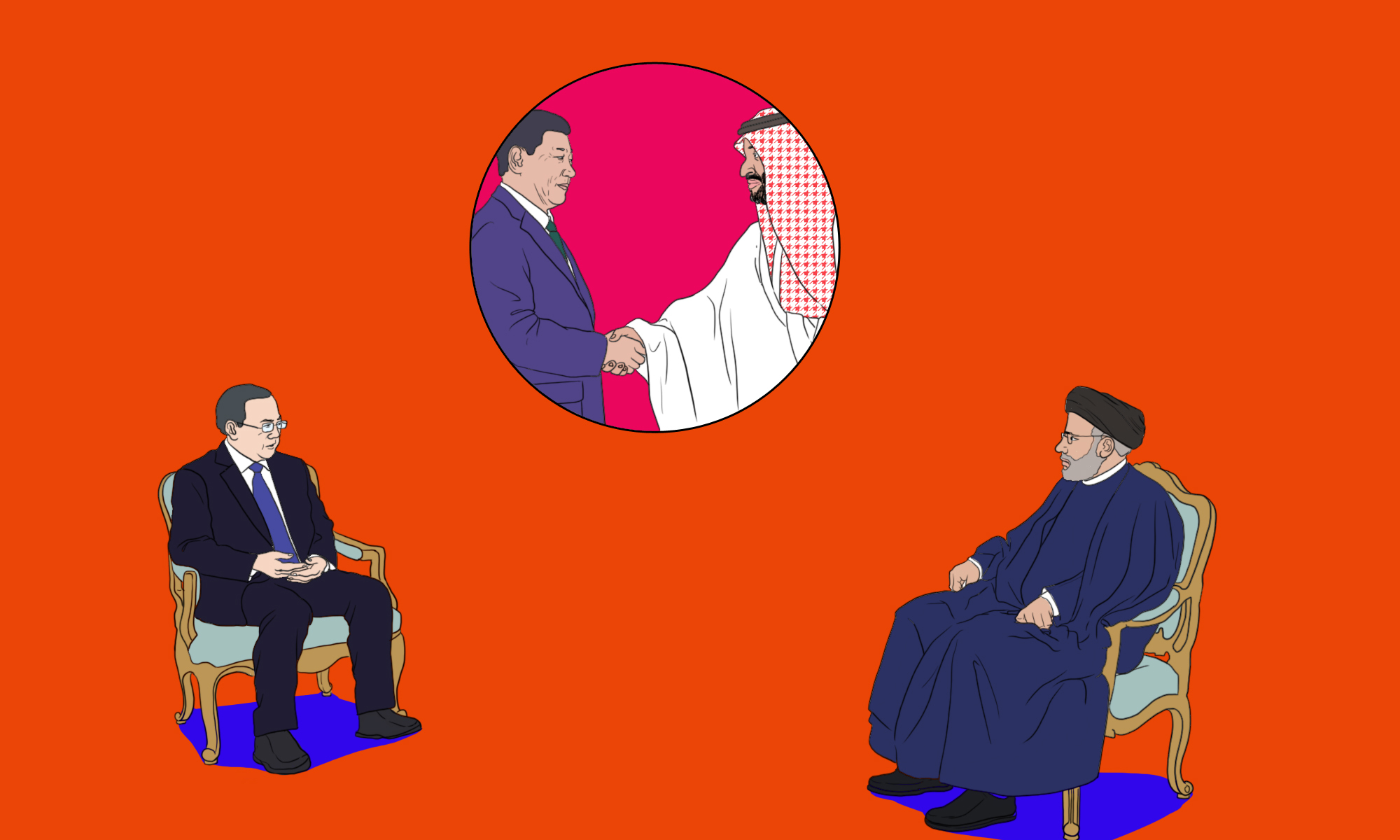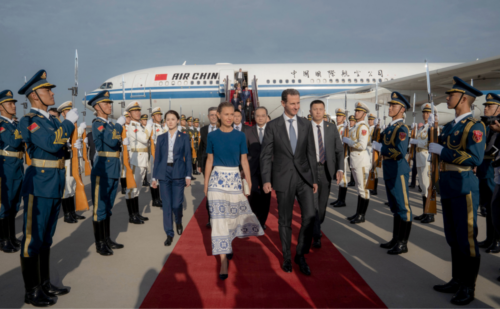China tries to mollify Iran after Xi’s deal-making trip to Saudi Arabia
Iranian President Ebrahim Raisi expressed his “dissatisfaction” with China’s joint statement with Gulf states while meeting with Chinese Vice Premier Hu Chunhuan.

Chinese Vice Premier Hú Chūnhuá 胡春华 met Iranian President Ebrahim Raisi in the capital city of Tehran on Tuesday, as tensions grow between the two nations over China’s warming ties with Saudi Arabia and other Gulf states.
Both sides reiterated their commitments to each other, while Hu said that China “firmly supports Iran in opposing external interference and safeguarding its sovereignty, territorial integrity, and national dignity.”
- At the Chinese Foreign Ministry’s daily press briefing in Beijing today, Bloomberg asked why Chinese state media did not mention the recent protests over the death of Mahsa Amini (玛莎 阿米尼 Mǎshā Āmǐní) during Hu’s visit, which spokesperson Wāng Wénbīn 汪文斌 responded, “The domestic situation in Iran is its internal affair, and we will not comment on it.”
Iran also “seriously demands compensation” for the joint statement signed between China and the Gulf Cooperation Council (GCC) nations during Xí Jìnpíng’s 习近平 pivotal trip last week to Saudi Arabia, Raisi said. The joint statement explicitly called attention to “the Iranian nuclear file in destabilizing regional activities” and Iran’s support for local terrorist organizations.
- The statement also urged for the “peaceful solution…in accordance with the rules of international law” of three small islands in the Persian Gulf — Greater Tunb, Lesser Tunb, and Abu Musa. Iran has governed them since the U.K. withdrew its forces in 1971, but they are also claimed by the United Arab Emirates (UAE) as part of its territory.
- The statement’s inclusion of the highly sensitive issue prompted Iran’s deputy foreign minister for the Asia-Pacific to call a meeting (though not a “summoning”) with the Chinese envoy, as Tehran seeks to express its outrage without further alienating itself from Beijing.
China news, weekly.
Sign up for The China Project’s weekly newsletter, our free roundup of the most important China stories.
While Iran grows wary of China’s warming ties with Saudi Arabia and its Gulf neighbors, in the form of billions worth of oil, yuan, and Huawei gear, Beijing has been actively emphasizing its neutral stance to avoid any rifts in the region.
- Beijing has been careful to treat both sides equally: In 2016, Xi signed comprehensive strategic partnership agreements with both Saudi Arabia and Iran within weeks of each other. China also held separate military drills with Iran and Saudi Arabia only a few weeks apart both in 2017 and 2019.
- In March last year, China and Iran signed a 25-year cooperation agreement, much to the frustration of Saudi Arabia, though no major contracts have been publicized so far.






